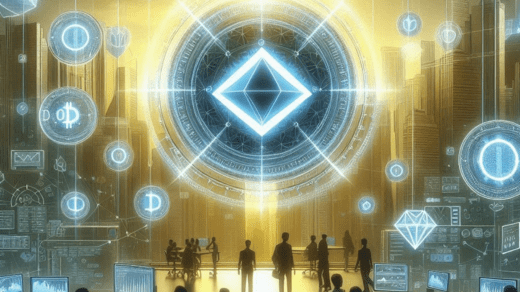By Dr. Pooyan Ghamari, Swiss Economist
The rise of Decentralized Autonomous Organizations (DAOs) signifies a shift in how organizations operate, offering an alternative to traditional top-down management structures. Built on blockchain technology, DAOs empower community-driven decision-making, removing centralized authority and placing control in the hands of participants. As organizations and individuals alike explore this groundbreaking model, DAOs show immense potential to redefine governance across sectors.
What is a DAO? The Foundation of Decentralization
DAOs are blockchain-based entities governed by smart contracts—automated agreements that execute actions when specified conditions are met. Each member holds tokens, which grant them voting rights, allowing them to participate in the organization’s governance directly. This approach replaces executive boards or hierarchical control with a democratic system where every stakeholder has a say in decisions.
Through blockchain, DAOs ensure that all transactions and decisions are visible and unchangeable, creating a transparent environment. Additionally, smart contracts reduce the need for administrative tasks, cutting operational costs and eliminating intermediaries, allowing DAOs to operate smoothly with minimal overhead.
Advantages of DAOs: A Paradigm Shift in Governance
The DAO structure offers significant benefits, including:
- Increased Transparency: All actions within a DAO are recorded on the blockchain, ensuring every participant can access the decision-making process and reducing opportunities for corruption or manipulation.
- Decentralized Control and Fair Voting: Instead of power being concentrated within a small group, DAOs distribute voting rights across the community. Token holders can propose, discuss, and vote on initiatives, promoting fair representation and equal say.
- Cost-Efficiency Through Automation: Smart contracts automate many processes, eliminating the need for expensive administrative overhead and increasing the speed and efficiency of decisions and transactions.
- Greater Inclusivity: DAOs encourage widespread participation, allowing members from all backgrounds to contribute, regardless of location, economic status, or professional network.
DAOs in Action: Real-World Implementations
DAOs have been embraced across diverse sectors, proving their adaptability in different environments:
- Finance and DeFi (Decentralized Finance): DAOs have found a natural fit in DeFi, where platforms like Uniswap and Compound use DAOs for governance. These DAOs allow participants to vote on platform changes, ensuring that decisions are in line with the community’s goals and needs.
- Philanthropy and Social Causes: Socially conscious DAOs focus on philanthropic efforts, offering a transparent way to allocate funds for humanitarian or environmental projects. These DAOs ensure that resources are used ethically and according to the community’s wishes.
- The Arts and Entertainment Industry: DAOs in the arts are helping creators manage their work, distribute royalties, and connect directly with supporters. Creators can raise funds, distribute ownership, and collaborate on projects while avoiding traditional gatekeepers.
Challenges of DAOs: Current Limitations and Concerns
Despite their advantages, DAOs face challenges:
- Regulatory and Legal Issues: DAOs are largely unregulated, and jurisdictions worldwide have yet to adapt legal frameworks to support or monitor them. This lack of legal clarity can create complications for DAOs engaged in complex financial operations or cross-border activities.
- Security Risks in Smart Contracts: The immutability of blockchain-based smart contracts, while beneficial, also means that errors in code or security vulnerabilities can lead to costly consequences. DAOs must prioritize rigorous code auditing to safeguard against potential risks.
- Consensus and Coordination Challenges: Achieving consensus among large, diverse groups of token holders can be complex and may slow down decision-making processes. Without a clear framework, some DAOs may struggle with prolonged debates or low participation in votes.
The Future of DAOs: A New Model for Organizational Governance
DAOs are ushering in a new governance paradigm that may extend beyond business. As they gain popularity, DAOs could even be used to facilitate community-driven decision-making in governments, municipalities, or social initiatives, fostering direct engagement between individuals and public policy. Over time, DAOs may emerge as the cornerstone of a decentralized society, empowering individuals to collaboratively shape their communities, industries, and perhaps even countries.
For more insights and smart investment opportunities, visit the original article here from this link. You can also find out about the latest news on A Land new section. Also for the latest trends in gold investment and to begin your journey into purchasing precious metals, visit EE Gold official website.

